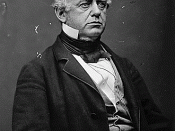It is a man's own mind, not his enemy or foe, that lures him to evil ways." (Buddha)
The word 'man' in this quote indicates a grown up, an adult, someone above the age of majority. However, in "I'm The King Of The Castle", this is not the case. After reading the novel, we are shocked. Our preconceptions about childhood innocence are shattered. Hill deliberately shocks us in a traditionally gothic style, by transgressing what we consider to be the accepted boundaries of behaviour. "I'm The King of The Castle," presents transgression through the behaviour of a ten year old boy; Edmund Hooper. The extent of Hooper's bullying goes beyond what we as a society feel comfortable with. Hill shows us through her novel that children can be evil, to the extent of forcing suicide upon someone. As a society we see children as innocent, but the novel shows us a different side, leaving us asking the question; can children be inherently evil? We feel uncomfortable with the idea of Hooper's evil and Kingshaw's suicide.
Hill describes her novel as being: 'about cruelty and about the power of evil, which can possess even a young child'. The idea of children not understanding how their actions may affect others is something Hill wanted to tackle.
Hooper is quite a complex character. He is presented as emotionless, because of the isolation he feels from living in 'Warings' and from the un-loving nature of his father. Hooper can easily be compared to his father. We are let inside Joseph Hooper's mind at the beginning of the novel, when he is contemplating his relationship with his son,
"we should be close together, we have only one another, I ought to be able to talk freely with him."
The italic emphasis on...


